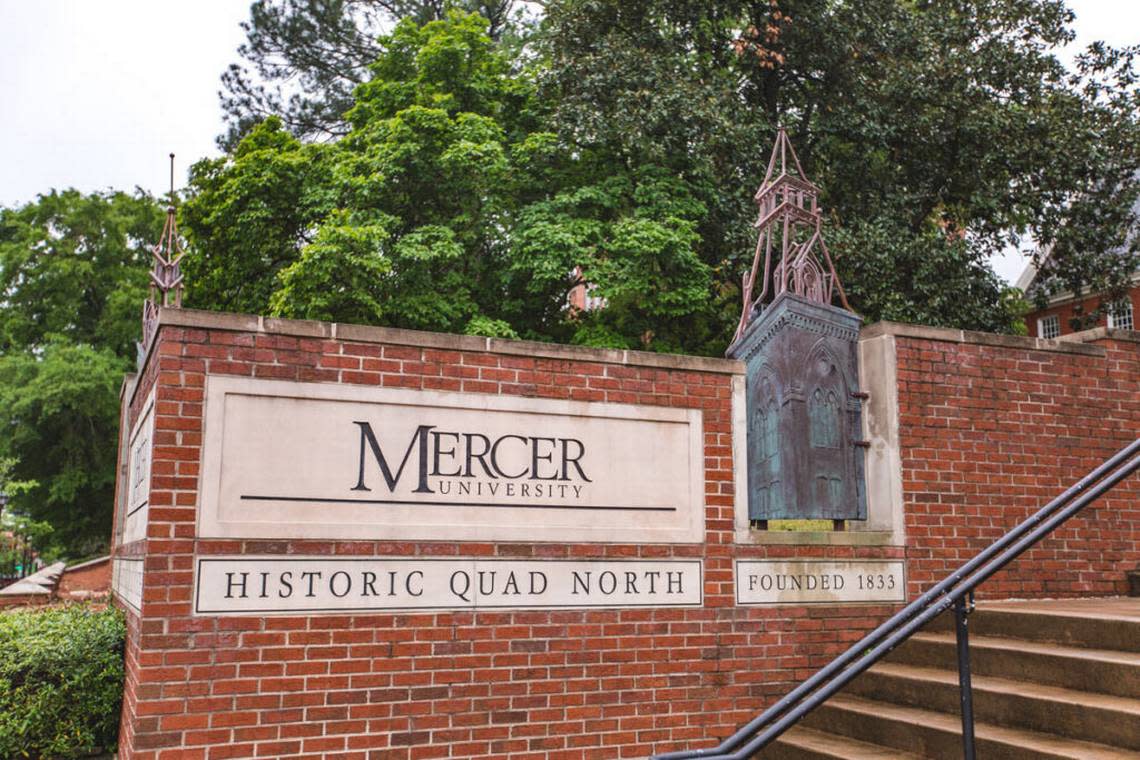Mercer University doesn’t owe refunds for remote classes during COVID, judge decides

A federal judge tossed a Mercer University student’s lawsuit Friday that alleged Mercer should’ve refunded fees she paid for in-person classes because COVID-19 lockdowns caused the university to move to remote learning.
The student, Mary Koerner, filed the lawsuit alleging she was deprived of university experiences that should have come with the fees she paid, according to court records. She said she went without those in-person classes due to the COVID-19 pandemic, and the university should give the money back.
Mercer University argued the fees didn’t directly correlate to in-person classes. The university also argued that transitioning to virtual learning during the COVID-19 pandemic was to protect students, faculty and staff, and wasn’t a breach of contract between the students and the university.
Judge Tilman Self III, in the Middle District of Georgia, agreed with Mercer.
“As a matter of law, even if the contract impliedly obligated Mercer to provide in-person services, that very same contract also permitted Mercer to amend its procedures in the event of an emergency like the COVID-19 pandemic,” Self said in his ruling.
“In sum, even assuming that the parties had an implied contract to provide in-person services in exchange for tuition, Mercer unambiguously reserved the right to alter its procedures and method of course delivery in the event of an emergency like the COVID-19 pandemic.”
Koerner filed the lawsuit against Mercer on March 11. Claiming to represent other students who are similarly situated, the lawsuit argued that on top of the average yearly tuition being $37,508 for undergraduate students, students also paid $150 in mandatory fees, including facility and technology fees.
More specifically, Koerner paid $18,754 in tuition, $150 in technology and facility fees, $2,750 in housing, $996 for a health insurance premium and $125 in lab fees in the Spring semester of 2020, when Mercer University transitioned to virtual learning, according to the lawsuit.
Since Mercer transitioned from in-person to virtual classes and the services referenced in the mandatory fees were not used, Koerner argued in her lawsuit that the university breached its contract with students because it did not provide in-person educational services and opportunities as promised.
She also argued the university placed a “financial burden” on its students by requiring them to pay tuition and fees not offered at the time. She requested a refund for the fees she paid during the semesters in which Mercer switched to virtual learning because the university had not issued refunds for them. She alleged the university acted in “bad faith.”
Before the pandemic hit, Mercer marketed itself as having immersive learning experiences through in-person classes. However, the students didn’t receive the immersive learning experience they were hoping for, the lawsuit argued. Instead, they received “sub-par” teaching, which included previously recorded Zoom meetings that were posted online for students to view on their own, according to the lawsuit.
Koerner argued there was a lack of classroom interaction among instructors and students, which is “instrumental in educational development and instruction.”
Koerner also argued that students were deprived of having the opportunity for collaborative learning, in-person dialogue, feedback and critique, and denied access to facilities such as libraries, laboratories, computer labs, recitations, study rooms and campus activities and services — all of which “are integral to a college education,” the lawsuit said.
What was Mercer’s response?
Mercer responded to the allegations on May 3, requesting to dismiss the action, calling it meritless and recycled.
“Mercer, like almost all universities, responded to that emergency by temporarily transitioning from in-person instruction to remote instruction to protect the health and welfare of its students, faculty, and staff,” the university’s response stated. “That decision did not benefit Mercer financially. Mercer instead incurred substantial additional costs in implementing that transition.”
In Mercer’s response, the university also argued that the New York law firm representing Koerner had sought out students to file these types of lawsuits. The same law firm sued Mercer under similar circumstances with another student as the plaintiff, and that student admitted under oath that she had no complaints about the transition to online classes, according to court records.
Additionally, Mercer argued that Koerner did not provide proof in the contract that expressed the promise to its students, and that the $150 mandatory fee was not explicitly in exchange for in-person classes. The university also argued that it had the right to transition to virtual learning as a response to an emergency.
Koerner is also not eligible for a refund because, in order to receive one, the student must withdraw from their courses, but she completed and obtained credit for the classes she took during the Spring semester, according to court records.


